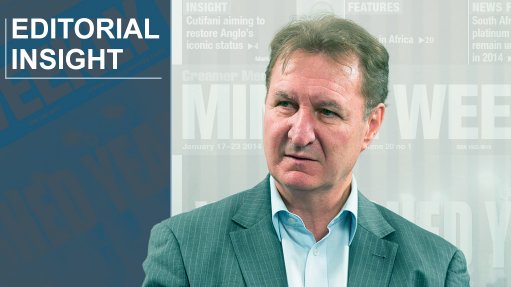
South Korea could be the model for African countries to ponder, says economics and finance superstar Jim O’Neill, who oversaw the investment of $800-billion as the former Goldman Sachs Asset Management chairperson and who coined the acronym Brics, which is a focus on the economies of Brazil, Russia, India, China and South Africa.
O’Neill, who addressed last month’s Mining Indaba as chairperson of the Cities Growth Commission, says South Korea scores highest on his updated variables for sustainable growth index of the key variables that drive sustainable growth.
There is, he says, one simple message that is critical to avoid the commodities curse: in the years of plenty, when in the future commodity prices do rise again, use those brief moments to do something about the things that really drive sustainable growth and prosperity.
The top 25 countries out of 180 indicate that some of the highest scoring countries are not commodity producers, and South Korea, which scores in the top five of any country in the world, is one of those – plus a sizeable population.
In the last half century, South Korea has gone from having the same level of wealth as most African countries do today to having the wealth of Spain.
It is the only country in the world that has managed to do so with a population of more than 45-million people.
Very interestingly, South Korea has done that despite having no commodities.
South Korea has to import virtually every commodity, which may be indicative of why so many talk of the commodities curse – but which can be a blessing that South Korea lacks to lift African countries that work on value addition simultaneously.
O’Neill’s view is that, if the leadership of countries that do produce commodities are thoughtful and sufficiently strong, they can use the years of plenty to make sure that those invaluable revenues from metals and minerals deliver what South Korea has delivered – plus have an ongoing commodities bonus.
South Africa currently falls well short of the level of South Korea based on the indicators used to determine the variables for sustainable growth index, with a very high correlation between the aggregate indicators and wealth.
South Korea scores very highly in education and technology, which makes it incumbent on the South African government to go well beyond mobile telephone infrastructure to enable universal communication, including in the education sphere.
International trade and foreign direct investment arise automatically from mining but what O’Neill postulates as the next compelling opportunity is for African countries to trade more with one another.
The final crucial factor is the quality of leadership and an ability of that leadership to strategise on commodities being an enabler to more sustainable growth and citizens being incentivised to provide the vital productivity so that South Korea’s eighth on the index can be challenged by an emerging set of African rivals. “South Africa,
if you can do that, you can get more prosperous and next time the commodities cycle goes against you, you will not be so unhappy,” is the message O’Neill leaves.